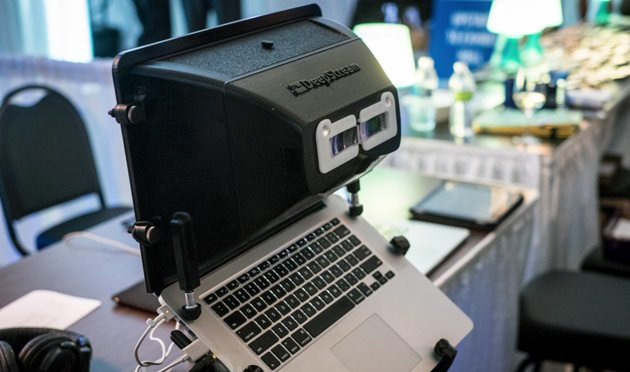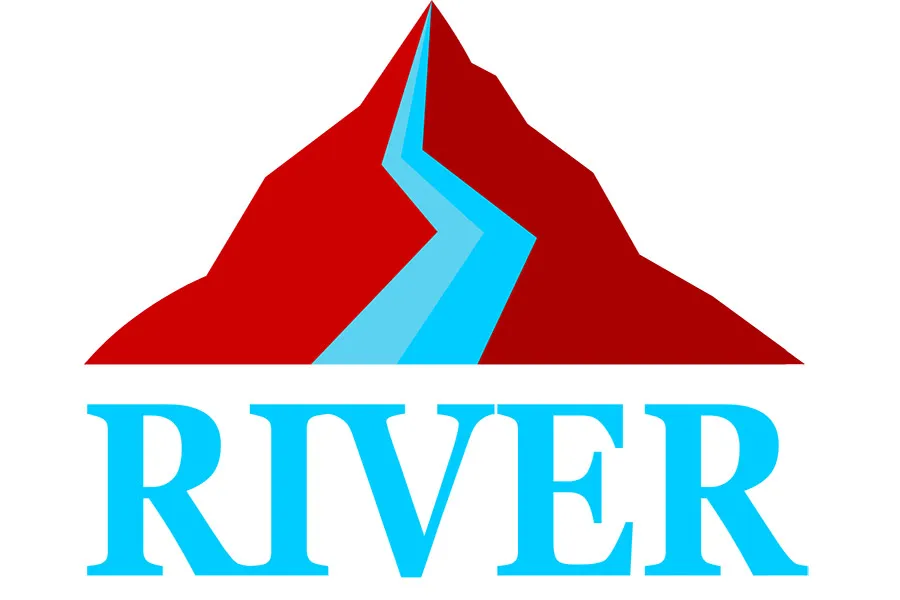When Rothenberg Ventures announced River in December, the VR world responded with gratitude. It was a void that needed filling, an injection of cash and resources to a select group of small VR startups, who are making waves in the space. Said Mike Rothenberg of the initial announcement, “The innovators have been stepping up for decades, it’s time for the financiers to step-up.”
And step up they have, originally the program was to consist of 10 different startups, however the overwhelming response that Rothenberg received made it impossible to choose only 10. The full list of 13 acceptees, chosen from a group of 200, is highlighted by a number of familiar faces, including FOVE and Nonny de la Peña’s Emblematic group. Says Rothenberg, “the founders of these companies are incredibly forward thinking, are incredibly talented, and really have that exuberance and belief in this technology.”
The inaugural group appears to have a diverse focus, with projects stretching across all different verticals from gaming to medicine. However, there seems to be a strong focus on educational or medical/therapeutic uses for VR, as five out of the thirteen companies appear to fall into this category. Rothenberg says, “those are companies that are affecting people’s lives immediately” which is why there was such a concentration in that industry.
Together the companies are comprised of representatives from 6 continents, jokes Mike Rothenberg, “we thought about going out to Antarctica and grabbing a penguin.”
Each of the companies accepted into the program will receive $100,000 in cash, as well as access to a “clubhouse” co-working space and mentorship. Accelerators have been a part of the startup ecosystem for a while and have helped countless companies achieve big success, but River is the first ever focused solely on VR, which leads to one of the great potential benefits of the program, collaboration. All these companies will be working together in a shared space, meaning plenty of opportunity for collaboration and idea sharing. With this many great minds working together, there are sure to be a couple more interesting projects that arise from this workspace.
So without ado, the first 13 members of the River VR accelerator program:
Hardware
FOVE
FOVE is the first ever virtual reality headset to bring eye tracking to VR. The system works by using a series of infrared cameras aligned around each of the lenses in the HMD to track the movement of your eyes. The unique setup has advantages over other eye-tracking solutions as the cameras are set up in a way that in no way impede your field of view. The system, currently in “late prototyping, early production” stage, offers a 2560×1440 LCD display (but they have plans to move to OLED “very soon”) with a FOV of “about 100-degrees.”
“Eye tracking is going to be the future of virtual reality,” says Lochlainn Wilson CTO of FOVE, “without eye tracking I don’t think that virtual reality will make an appearance as a competitive gaming platform.”
Wilson, a gamer himself, started working on eye tracking after trying to play Team Fortress 2 on the DK1, and getting frustrated at not being able to win. “I was getting killed by bots,” says Wilson, “and I was like ‘this shouldn’t be happening.’” By adding eye tracking, Wilson is able to overcome the parallax effect that makes aiming in FPS’s in VR so hard.
But it’s not just gaming, eye tracking has the power to enable things like depth of field, and deeper interaction with AI. It is also enabling people with muscular dystrophy to play the piano, which is pretty incredible.
Founders: Yuka Kojima, Lochlainn Wilson
Based in: Tokyo, Japan
Website: http://fove-inc.com/
Education and Training
Solirax
Bringing with him two of the most well known VR experiences to date, the Proto Award nominated SightLine the Chair, and the incredible education experience, World of Comenius.
World of Comenius is still in development but the experience looks to create an “educational virtual reality metaverse” that allows students to explore many different educational experiences and tools including biology, as demonstrated in the video. Says the creator Tomáš “Frooxius” Mariančík, this project “aims to utilize VR to show people things that weren’t possible before.”
Founders: Tomas Mariancik and Karel Hulec
Based in: Czech Republic
Website: http://www.worldofcomenius.com/
SDK
SDK is a bootstrapped startup coming out of South Africa, which is an accomplishment in and of itself as Mike Rothenberg told me, “if you want to talk about overcoming crazy obstacles? Try bootstrapping a virtual reality company in Africa.” SDK is producing augmented and virtual reality industrial training experiences. They have already worked with an impressive client list including Nokia, Timberland, Samsung, Microsoft, and Qualcomm.
Beyond developing training experiences in AR and VR, the team is also working on eyeball and facial tracking, as well as facial recognition.
The team recently won a “Technology Top 100” award for their efforts thus far.
Founders: Shaun Wilson, Christian Yves Fongang
Based in: South Africa
Website: http://sdklab.com/
Discovr

Discovr is focused on creating immersive learning experiences that allow users to explore the ancient world in a virtual environment. Discovr’s mission is to “challenge the ways in which we digest educational content,” by creating an “entire market of educational content.”
Currently the team has created two VR educational experiences, Rome Reborn and Vessels VR.
Rome Reborn 2.2: A Tour of Ancient Rome in 320 CE from Bernard Frischer on Vimeo.
Rome Reborn offers users a virtual tour of ancient rome, as it might have appeared in 320 A.D. The experience eventually intends to show the progression through time of the city from 3000 B.C. until the early middle ages in 550 A.D.

Vessels VR is a VR educational experience that takes people on a “magic school bus” ride through human organ systems at a cellular level. The journey is also guided and narrated by a friendly robot named PAL (Personal Assistant for Learning).
Founder: Josh Maldonado, Omar Charles, Professor Bernard Frischer
Based in: Toronto, Canada
Website: http://immersivediscovery.com/
Medicine
Psious
https://www.youtube.com/watch?v=NHRjRMvtwMI
Psious is a virtual reality platform for mental health practitioners that is working on VR experiences that help to cure patients’ fears using immersion therapy. Their platform runs on mobile VR, meaning that it is highly accessible to doctors world wide, meaning that it is positioned for rapid adoption.
The system comes with a number of predesigned scenarios meant to help treat common disorders, including: fear of public speaking, fear of flying, arachnophobia, fear of needles, fear of driving, agoraphobia, and of course the classic fear of heights.
The experiences are customizable to fit the needs of the individual patients, allowing therapists to gradually increase the virtual exposure, to help clients take their therapy one step at a time. The system also comes with software that allows for therapists to track their patients progress through the program.
Founders: Xavier Palomer, Danny Roig
Based in Spain
Website: http://psious.com/
DeepStream VR

DeepStream VR is a company that creates intelligent adaptive games that assist with pain relief. Their system allows for VR using a laptop without googles or glasses with can be restrictive and uncomfortable for certain patients, like burn victims for example.
The team has put in over a decade of research which has indicated the virtual reality can help relieve pain, reduce stress and build resilience. They are looking to create the next generation of intelligent VR games complete with biosensors that help the games adapt to your “optimum performance level.”
Based in: Seattle, WA
Founders: Howard Rose, Ari Hollander
Website: http://deepstreamvr.com/
Gaming
Reload Studios

Reload studios is an independent game studio that is comprised of 15 members, including former Call of Duty developers and Disney artists.
The team has yet to officially announce what projects they are working on but has released a teaser video:
The project appears to be a first person shooter, built using Unreal Engine. Said Pete Blumel, the company’s executive producer of the project, “It’s still very early in the development process but we’ve accomplished a great deal since our studio’s inception so we thought we’d share a little hint of what we’re doing… what we’re about.”
At the Samsung developers conference Chetan Bedi, one of the teams designers, said that his team embraced the Infinity Ward mantra of ‘framerate and fun.’ Meaning that they wish to make sure the experiences they create are heavily optimized. Their game is expected to be released some time this year.
Founder: James Chung
Based in: Los Angeles, CA
Website: http://reload-studios.com/
Innerspace

Innerspace VR is a company that is focused on creating high quality VR content that has an emphasis on artistic and cultural expression. The team has already achieved an impressive list of partners, including Oculus, Samsung and Crytek.
Currently Innerspace has 3 projects that they have created, The Fifth Sleep, PLAYHEAD, and The Cave.
The Fifth Sleep
The Fifth Sleep – Trailer from Balthazar Auxietre on Vimeo.
The Fifth Sleep is an experience that is “at the crossroads of video game and cinema,” that challenges players to make the choice between waking a patient who is trapped in a coma by entering his body, blood and brain, or leave him to his dreams, where he attempts to convince you that he belongs.
The Fifth Sleep is coming as a free download for the Samsung Gear VR.
PLAYHEAD

PLAYHEAD is a interactive musical game that combines music and world creation in a new way that allows users to craft their songs down to the individual note, then remix those pieces which are associated with visuals.
By editing the song, you edit the environment. The game immerses users in the music in ways never before possible.
The Cave
On ne sait jamais de quoi le passé sera fait from Balthazar Auxietre on Vimeo.
In this experience, players travel though a landscape in the glacial age. Walking through the scenery players discover and explore a cave with which they are able to interact to explore its secrets.
The idea of this experiences is that prehistoric cave paintings were the first example of immersive storytelling, so this was an homage to that.
Founder: Balthazar Auxietre and Hayoun Kwon
Based in: Paris, France
Website: http://innerspacevr.com/
Thotwise
Thotwise is an indie game studio that is focusing on exploration and suspense games. Their current project entitled, The Hum: Abductions is a first person horror game that is being developed with Unreal Engine 4. In the game you will play the role of Holly Sanders who is living out the days since her husband’s disappearance months ago. You will face a quest that leads you to uncover things about your past and present that lead to a terrifying revelation.
They team has plans to turn The Hum into a franchise of its own with an expansive universe, with Abustions being the prequel.
Founder: Ariel Arias
Based in: Argentina
Website: thehumgame.com
Journalism
Emblematic Group
The Emblematic Group, led by Nonny de la Peña, is leading the way in immersive journalistic experiences. Nonny’s previous works, Hunger and Project Syria have both garnered a lot of praise for their ability to push journalism to new heights, increasing the emotional impact of the stories being told.
I spoke with Nonny earlier this week, who said “these are old lessons that we learn in journalism that I’m just bringing into a new platform.” She looks at the speed at which things are developing and expects that eventually we will be able to have our VR news delivered at the “speed of YouTube,” and that eventually “we are going to quickly scan up the Boston marathon bombing site or whatever, and people which out their phone, drop it in, and take a look at what happened.”
Nonny also believes that this new medium will help encourage younger people to watch the news, because it would be something that would speak to them generationally. Kids today “aren’t necessarily picking up the newspaper or watching broadcast TV,” so it is important to deliver news to them in a way that engages them and informs their understanding of the world around them.
“Emblematic is unique among commercial VR companies to offer this kind of freedom of movement,” says co-founder Michael Licht, speaking about the ability to walk in their experiences. “But we’re not stopping there–we’ve also created projects for mobile VR, as well as 360° live-action film experiences.”
Founder: Nonny de la Pena
Based in: Los Angeles, CA
Website: www.emblematicgroup.com/
Video
Vantage VR

Vantage VR dubs itself the “Ticketmaster for VR events.” The company, founded in 2014, previously broadcasted the Austin City Limits music festival in October in VR. During the festival online attendees were able to experience the festival from multiple different angles and choose which stages they wanted to visit. The experience was broadcast in 180-degree video.
Says founder Juan Santillan, “vantage.tv has the opportunity to revolutionize how people consume and engage with live content in their homes or wherever they are. We are excited to be delivering the first platform that will give unprecedented access and control to fans from their living room to live events all over the world.”
Their experiences work on most of the currently available VR platforms, including the Oculus Rift, Sony’s Project Morpheus, GearVR, and Google Cardboard, and others.
Based in: Dallas, TX
Founders: Juan Santillan, Michael Richardson
Website: vantage.tv
Triggar

Triggar has a number of different technologies that they offer. First and foremost, they are a 360-degree video company, complete with their own “bespoke camera system.” They offer an “end to end” system that allows you to interact with videos in “innovative ways.” One of those ways appears to be zoom as I found on this video, as well as, according to the website, gesture controls. They also have “solved the parallax error issues… when shooting in close environments.”
Their app is available on iOS and Android that allows you to view that video on your smartphone.
Beyond 360-degree video, the company also is working with Augmented reality and facial recognition software. The team has built experiences for the Museum of contemporary art, Lisa Maree Fashion, and Amway.
Founders: Bruce Allan and Rob Allan
Based in: Australia
Website: http://www.triggar.com.au/
EmergentVR
Not much information is available about EmergentVR, other than they have an application that allows people to create, edit and share 360-degree VR experiences using their mobile phone. The web domain, emergentvr.com, was registered on January 9th, 2015, so I would expect more information will be available soon.
My best guess is that the program will work much like the panoramic photo option on many mobile phones, where users pan and scan around their environment, and the software stitches the images together into a 360 environment.
Founders: Peter Wilkins, Chris Wheeler
Based in SF
Website: n/a (but placehold, www.emergentvr.com)
—-
Applications for the fall program will open up “soon” says Mike Rothernburg and can be found on the River website.






























